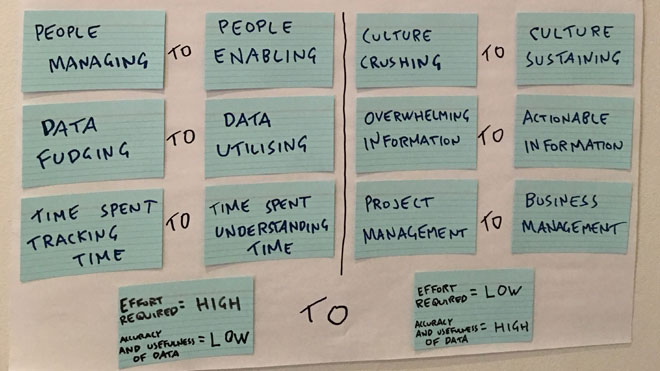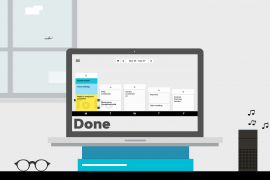It’s just what we do.
We track time. We fuss over Gantt charts. We fret over worked hours versus quoted hours.
But we hate it.
Because it’s cumbersome, time-consuming and – let’s face it – a little soul crushing.
It’s not surprising – we’re using products that constantly pile on new features (egged on by misguided product reviewers), instead of meeting our growing need for simplified, tailored and intuitive platforms.
What if Streamtime threw the accepted practices out the window, and risked the ire of the tech media to radically alter the interface and input requirements?
What if instead of people inputting time, it was tracked natively within the system for them?
What if our project plans were auto-populated from our proposals and calendars?
What if managers received smart predictions and advice based on hours worked versus hours estimated, to course-correct on the fly?
What if Streamtime tracked cultural performance as well as financial performance?
We’d all have to adapt.
Throw out habits we’d developed over many years, and learn a whole new way of doing things.
But project managing and time-tracking would be so much easier and worthwhile.
There’d be a consequence, though. With so much genuine data available so readily, we’d have to accept a hard truth – the current system is built on lies.
Dramatic, perhaps, but true – we currently add extra time to our timesheets to pump up revenue, or remove it to appease clients.
We set a plan for the week on Monday, and then instead work to the constantly shifting time-constraints and demands of the real world.
And this new stream of data would force us to accept that we currently toil through admin work to create a comforting but ultimately damaging illusion of control.
Oof. That’d be a bummer.
At first.
Because before we had time to get too down about it, data would be spitting out of Streamtime that we’d never had before.
We’d be able to tell which tasks were making our people regret turning up to work in the morning. We’d be able to see, immediately and graphically, the divide between the costs that were planned for and the costs that were actually incurred. We’d be getting clear indicators of the trajectory of our businesses.
Instead of software that micro-managed our projects, it’d be software that helped us improve our businesses and support our people.
And we’d all be getting it all with less effort than we currently put into admin.
It’d be more than just our time, streamlined – it’d be our time utilised more effectively than we could’ve possibly predicted.
That’s worth breaking a few habits for, right?
Mathew Groom – Storyteller at For The People.








